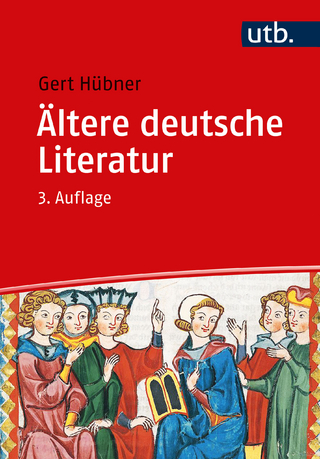
The Common Good in Late Medieval Political Thought
Seiten
1999
Oxford University Press (Verlag)
978-0-19-820716-0 (ISBN)
Oxford University Press (Verlag)
978-0-19-820716-0 (ISBN)
This text challenges the view that the rediscovery of Aristotle was the catalyst for the emergence of a secular theory of the state. An exposition of the content and context of political and ethical thought reveals that the roots of "secularization" were theological.
This study offers a major reinterpretation of medieval political thought by examining one of its most fundamental ideas. If it was axiomatic that the goal of human society should be the common good, then this notion presented at least two conceptual alternatives. Did it embody the highest moral ideals of happiness and the life of virtue, or did it represent the more pragmatic benefits of peace and material security? Political thinkers from Thomas Aquinas to William of Ockham answered this question in various contexts. In theoretical terms, they were reacting to the rediscovery of Aristotle's Politics and Ethics, an event often seen as pivotal in the history of political thought. On a practical level, they were faced with pressing concerns over the exercise of both temporal and ecclesiastical authority - resistance to royal taxation and opposition to the jurisdiction of the pope. In establishing the connections between these different contexts, The Common Good questions the identification of Aristotle as the primary catalyst for the emergence of 'the individual' and a 'secular' theory of the state. Through a detailed exposition of scholastic political theology, it argues that the roots of any such developments should be traced, instead, to Augustine and the Bible.
This study offers a major reinterpretation of medieval political thought by examining one of its most fundamental ideas. If it was axiomatic that the goal of human society should be the common good, then this notion presented at least two conceptual alternatives. Did it embody the highest moral ideals of happiness and the life of virtue, or did it represent the more pragmatic benefits of peace and material security? Political thinkers from Thomas Aquinas to William of Ockham answered this question in various contexts. In theoretical terms, they were reacting to the rediscovery of Aristotle's Politics and Ethics, an event often seen as pivotal in the history of political thought. On a practical level, they were faced with pressing concerns over the exercise of both temporal and ecclesiastical authority - resistance to royal taxation and opposition to the jurisdiction of the pope. In establishing the connections between these different contexts, The Common Good questions the identification of Aristotle as the primary catalyst for the emergence of 'the individual' and a 'secular' theory of the state. Through a detailed exposition of scholastic political theology, it argues that the roots of any such developments should be traced, instead, to Augustine and the Bible.
Albertus Magnus: Aristotle and the Common Good ; Albertus Magnus: Common Good and Common Benefit ; Thomas Aquinas: Metaphysics and Hierarchy ; Thomas Aquinas: Love, Justice, and Virtue ; The Life of Virtue: Giles of Rome's De Regimine Principum ; Henry of Ghent: Self-Love and Inclusion ; Henry of Ghent: Authority, Obedience, and Resistance ; Godfrey of Fontaines: Love, Justice, and Virtue ; Godfrey of Fontaines: Authority, Obedience, and Resistance ; The Life of Virtue: Giles of Rome, James of Viterbo, and John of Paris ; Remigio dei Girolami: The Order of Love ; Remigio dei Girolami: Peace and Order ; Conclusion ; Bibliography
| Erscheint lt. Verlag | 20.5.1999 |
|---|---|
| Verlagsort | Oxford |
| Sprache | englisch |
| Maße | 162 x 242 mm |
| Gewicht | 787 g |
| Themenwelt | Geschichte ► Allgemeine Geschichte ► Mittelalter |
| Geisteswissenschaften ► Geschichte ► Regional- / Ländergeschichte | |
| Geisteswissenschaften ► Philosophie ► Philosophie des Mittelalters | |
| Religion / Theologie ► Christentum ► Kirchengeschichte | |
| Sozialwissenschaften ► Politik / Verwaltung ► Politische Theorie | |
| ISBN-10 | 0-19-820716-6 / 0198207166 |
| ISBN-13 | 978-0-19-820716-0 / 9780198207160 |
| Zustand | Neuware |
| Haben Sie eine Frage zum Produkt? |
Mehr entdecken
aus dem Bereich
aus dem Bereich
eine neue Geschichte des Mittelalters
Buch | Hardcover (2023)
C.H.Beck (Verlag)
38,00 €


